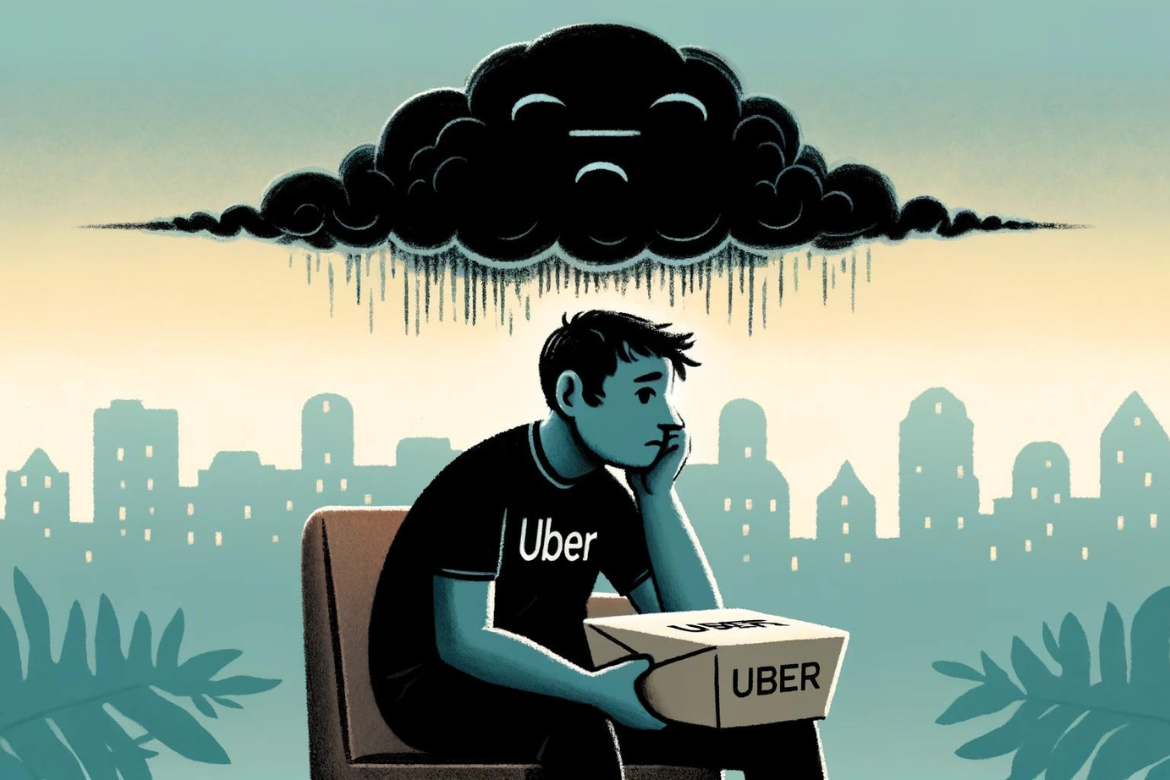By Atieh Razavi Yekta, University of British Columbia
The rise of technology in the workplace, labour market deregulation and the decline in union representation have all significantly impacted the occupational health and safety field.
Occupational health and safety is a critical area of public health aimed at promoting and maintaining physical, mental and social well-being among workers across all occupations. This includes improving working conditions, fostering supportive work environments and promoting health-conscious workplaces.
In the context of the gig economy, which is driven by digital platforms that use algorithms to facilitate various forms of work, occupational health and safety concerns are especially pronounced.
Gig economy challenges
Platform workers often choose gig jobs for their flexibility, but they face unique challenges, including job insecurity, discrimination, social isolation, irregular working hours and sleep deprivation.
The lack of collective bargaining and an imbalance of power and control between platform companies and workers means these jobs are more precarious than full-time jobs.
Many gig workers are classified as independent contractors, which means they are not entitled to the same legal protections other workers are under the Canada Labour Code, such as health benefits, minimum wage laws and safety regulations. This can leave gig workers vulnerable to various health and safety risks.
The gig platform model, where success is measured by customer satisfaction rather than worker well-being, often leads to exploitation and inadequate protection for workers. The traditional frameworks for occupational health and safety are proving to be inadequate for the gig economy.
Dehumanization of platform work
There are growing concerns about the dehumanization of platform work because of the increasing use of automation and artificial intelligence.
As gig work platforms increasingly depend on machine learning models — often characterized as “black boxes” because of their opaque decision-making processes — platform workers are finding themselves interacting more with algorithms than human beings.
This lack of human-to-human interaction can lead to a psychosocial instability. This shift can be harmful, as it prevents individuals from engaging in activities that contribute to self-empowerment and fulfilment at work.
The gig economy’s reliance on algorithms to manage the platform workforce exacerbates psychosocial risks. Workers face continuous job transformation as a result of technological advancements, alongside fears of job loss, loss of autonomy and loss of privacy. These factors contribute to increased levels of anxiety, depression, disengagement and withdrawal in workers.
Job insecurity
Job insecurity is a prevalent work stressor among gig platform workers. Studies have consistently shown that job insecurity has adverse effects on psychological health and well-being and results in poor self-rated health.
A Canadian study on job insecurity and mental health found that subjective measures (such as perceived job insecurity) and objective measures (like the probability of joblessness) are associated with heightened psychological distress in working-age individuals.
Another study emphasizes the key role of work in developing and maintaining psychological health, as work fulfils various fundamental human needs, such as survival, relatedness and self-determination.
However, there isn’t enough evidence yet to establish whether platform work is associated with positive indicators of psychosocial stability, such as lower levels of depression, increased psychological resilience and greater self-esteem.
Given the negative health outcomes associated with gig work, it’s essential to ensure healthy working conditions for platform workers by promoting equitable access to resources, opportunities and protections.
Social determinants of health
The changing nature of jobs, advancements in occupational health and the unequal distribution of occupational injuries — particularly among social groups like immigrants — underscore the need for a more comprehensive understanding of work and health.
Understanding the occupational health landscape requires considering the social determinants of health. These encompass the conditions in which people are born, grow, live, work and age.
These determinants include broader social structures (such as race, socioeconomic status, immigration status and gender), employment (such as compensation and benefits) and regulatory frameworks (including the deregulation of the workforce, outsourcing and competitive bidding).
Social determinants of health are shaped by the distribution of money, power and resources at global, national and local levels. They are primarily responsible for health inequities — the unfair and avoidable differences in health status observed within and between countries.
Existing studies have examined the connections between work and health, or work and migration, but little research has addressed the nexus of platform work and social determinants of health.
Entrenched social structures
Despite these challenges, there is growing awareness about the need to improve occupational health and safety standards within the gig economy. A central challenge to achieving this is addressing the social structures that are entrenched in occupational health and safety policies and practices that contribute to worker vulnerability and illness.
Existing occupational health and safety regulations don’t always account for the distinctive experiences and viewpoints of historically marginalized groups, such as immigrants.
As a result, the specific needs and challenges of these groups may be overlooked, leading to gaps in protection and support that perpetuate health disparities and poor working conditions. This is especially the case in decentralized workforces like the platform economy.
As the nature of work continues to change, it will be crucial to adopt a comprehensive approach to occupational health and safety that considers social determinants of health and addresses the unique challenges faced by marginalized groups. All workers deserve to have their health and well-being protected, regardless of their employment status.
Atieh Razavi Yekta, Sessional Lecturer, School of Public Policy and Global Affairs, University of British Columbia
This article is republished from The Conversation under a Creative Commons license. Read the original article.





